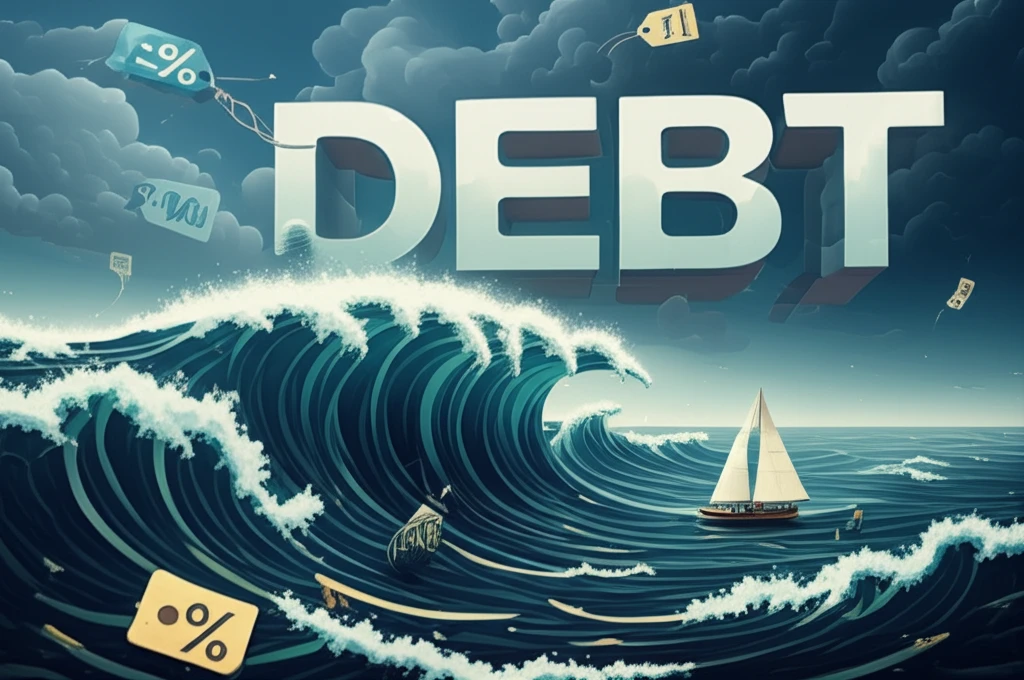
Debt & Destiny: How Government Borrowing Impacts Inflation and Your Finances
"Uncover the surprising link between national debt, interest rates, and the prices you pay every day. Is your financial future at risk?"
In the wake of global crises such as the COVID-19 pandemic and the ongoing economic fallout from geopolitical events, many countries, including the United States, have seen their national debt levels surge to unprecedented heights. This rise in debt raises a critical question: Should we be concerned about the potential effects on our financial well-being? While conventional economic wisdom suggests that government debt is only problematic if it lacks a plan for repayment, a closer look reveals a more complex picture.
A groundbreaking research paper sheds light on how public debt can influence inflation, even when governments are committed to managing their finances responsibly. The key lies in understanding the role of government bonds as a form of insurance against individual financial risks. When these bonds become more appealing as a safety net, even temporary increases in government debt can drive up interest rates and fuel inflation.
This article dives into the critical findings of this research, explaining how government debt can impact your everyday expenses and offering insights on how to navigate these economic forces. We'll explore the relationship between national borrowing, interest rates, and inflation, providing you with the knowledge to protect your financial future.
The Unexpected Link: Debt, Risk, and Rising Prices

The study highlights a fascinating connection: government debt can act as a safety net for individuals, insuring them against financial risks like job loss or business downturns. When a government increases its debt, it essentially creates more of this 'insurance' for the private sector. This increased demand for government bonds can lead to higher interest rates, as people are willing to pay more for this security.
- Insurance Against Risk: Government bonds can function as a safety net for individuals, protecting against economic uncertainties.
- Interest Rate Impact: Increased demand for these bonds can push interest rates higher.
- Inflationary Pressure: If central banks don't adjust their policies accordingly, inflation can result.
Navigating the Economic Seas: What This Means for You
The research underscores the importance of understanding the complex interplay between government debt, monetary policy, and individual financial well-being. While it's impossible to predict the future with certainty, being aware of these economic forces can help you make informed decisions. Consider diversifying your investments, managing your debt carefully, and staying informed about economic trends. By taking proactive steps, you can navigate these economic seas with greater confidence and protect your financial future.
